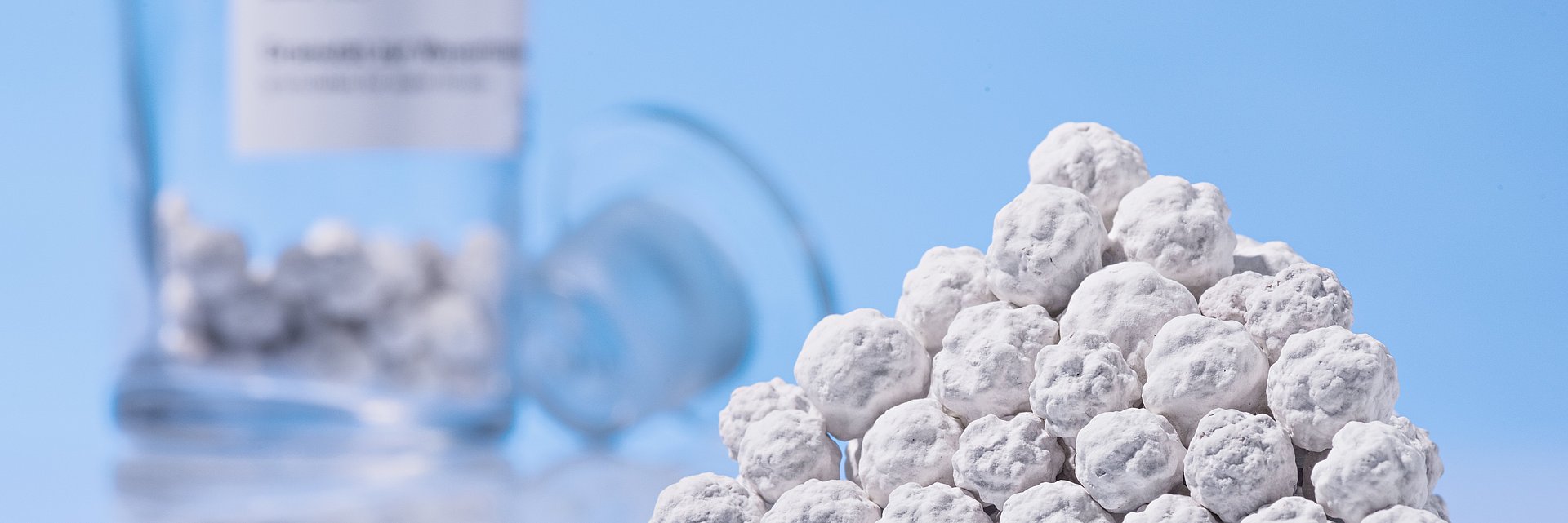Sintering Process
Sintering treatment takes place just below the melting point of the major components of the material, so that the physical form of the particles is retained and the individual particles remain identifiable under the microscope.
The green bodies initially have a high pore volume, often up to 40% of their total volume. In the sintering process, these pores shrink to a fraction of their size. This ‘pore destruction’ results in substantial shrinking of the green body, but in such a way that it retains its shape.
The sintering treatment exploits the fact that fine powders have a large specific surface area and therefore high surface energy. Every system tends to minimize its surface energy. During the sintering process, while the pores collapse, reducing the overall volume of the material, the particles expand and form an increased number of saturated chemical bonds. This leads to a decline of the surface energy. In this way the green body as a whole becomes harder and the material approached its final size and strength.
Sintering of Your Material at IBU-tec
At IBU-tec, we carry out sintering of materials such as proppants and gravel packs. We also regularly sinter aluminum oxide, partly for use in refractory linings. Sintering is also an established method for many industrial catalysts and catalyst supports.
In our rotary kilns, we can sinter pellets, granulates, tablets and other preformed bulk materials cost-efficiently and in large quantities. The green bodies that are used as the starting material can be supplied by the customer or, alternatively, we can produce them too.
If you have any questions about sintering processes, please contact us! We will be happy to advise you.

